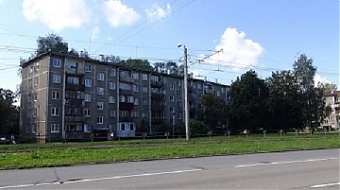Analytics, Latvia, Real Estate, Society
International Internet Magazine. Baltic States news & analytics
Tuesday, 24.02.2026, 12:31
OECD: Many Latvian residents are stuck in poor quality housing, cannot afford upgrades
 Print version
Print version |
|---|
The report says that as a legacy of the privatization of the housing stock that occurred after Latvia restored its independence, Latvia is a country of homeowners, with seven out of ten households owning their home. Average household spending on housing is below the OECD average, and few households are overburdened by housing costs – that is, spend more than 40% of their disposable income on housing.
The OECD noted that the majority of the housing stock was developed during the Soviet era and has been insufficiently maintained. Over a third of households live in overcrowded dwellings, the largest share in the OECD, and around a quarter of poor households live in dwellings without basic facilities, compared to an OECD average of less than 7% and an EU average of less than 6 percent. Some people cannot afford upgrades: almost three in ten households report housing maintenance expenditures to be a heavy financial burden.
Affording a mortgage to buy a home remains out of reach for many people. Based on OECD simulations, fewer than half (43%) of all Latvian households could afford a new mortgage on a 50 square-meter apartment, while only 27% could afford a mortgage on a 75 square-meter apartment. The challenge is especially large for single-person and single-parent households. Since 2010, house prices in Latvia have steadily increased to return to about 2006 levels. This increase is partly in line with income growth, but is also driven by a rise in construction costs that has resulted from a shortage of skilled labor and the increased cost of building materials.
The report also says that property owners price in potential risks of financial losses by setting higher rent levels. In this environment, rent prices have increased by over 60 percent since 2005, and the price-to-rent ratio suggests that buying a dwelling is generally more attractive than renting. Households that do not have sufficient income to purchase a house or an apartment therefore only find themselves with the option of paying high rents. Pending legislation seeks to rebalance the landlord-tenant relation and could be a first step towards greater incentives for property owners to rent out dwelling.
Residential mobility in Latvia is very low (well below the EU average) and even lower for employment-related reasons, which poses a barrier to
matching jobs with job-seekers. In fact, job vacancy rates have been increasing across the country through 2019. Improving housing conditions could positively impact economic development and well-being, among others, by providing greater opportunities to move where jobs are in greater demand.
The OECD recommends Latvia to improve assessment of housing affordability and quality, and evaluate needs, to invest more in quality affordable housing and reduce construction costs, to develop a more affordable, attractive private rental market, and to close the gap among the “missing middle”, by better calibrating housing support for different households rental market
- 28.01.2022 BONO aims at a billion!
- 25.01.2021 Как банкиры 90-х делили «золотую милю» в Юрмале
- 30.12.2020 Накануне 25-летия Балтийский курс/The Baltic Course уходит с рынка деловых СМИ
- 30.12.2020 On the verge of its 25th anniversary, The Baltic Course leaves business media market
- 30.12.2020 Business Education Plus предлагает анонсы бизнес-обучений в январе-феврале 2021 года
- 30.12.2020 Hotels showing strong interest in providing self-isolation service
- 29.12.2020 В Латвии вводят комендантский час, ЧС продлена до 7 февраля
- 29.12.2020 В Rietumu и в этот раз создали особые праздничные открытки и календари 2021
- 29.12.2020 Latvia to impose curfew, state of emergency to be extended until February 7
- 29.12.2020 18-19 января Наталия Сафонова проводит семинар "Управленческий учет во власти собственника"








 «The Baltic Course» Is Sold and Stays in Business!
«The Baltic Course» Is Sold and Stays in Business!

